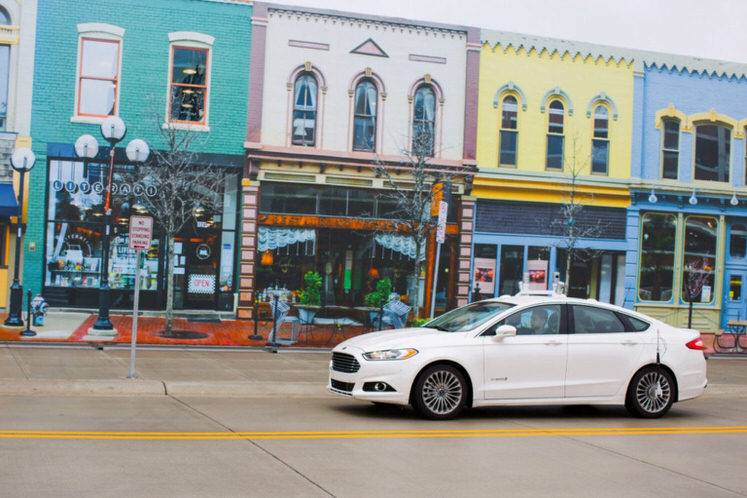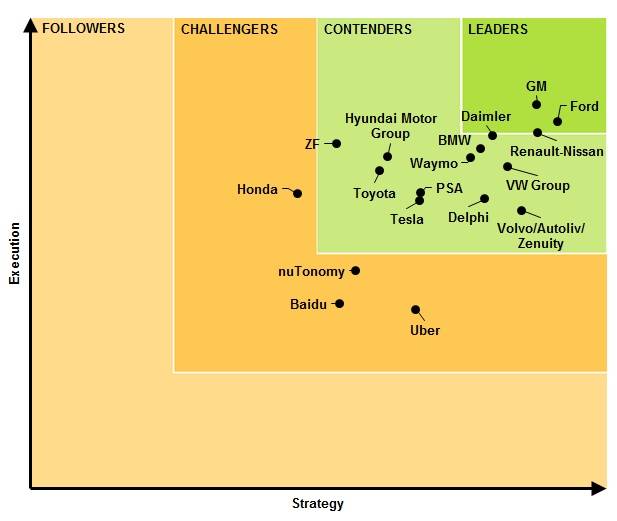Silicon Valley has been the epicenter of all major tech advancement in the past decade, but when it comes to self-driving, Detroit could snatch that the title away.
A new report from Navigant Research shows two of the ‘Big Three’ Detroit auto companies, Ford and General Motors, ahead of auto and tech rivals based in Silicon Valley and Germany.
The researchers used 10 different criteria, including strategy, manufacturing, distribution, staying power, and execution, to mark 18 companies currently working on self-driving tech.
Ford and General Motors were named ‘leaders’ in the report, alongside Renault-Nissan and Daimler. BMW, VW, Tesla, Waymo, and Volvo were all placed in the ‘contenders’ category, as seen in the graphic above.
In the rundown of the rankings, Waymo, the first Silicon Valley company, is ranked seventh. Baidu, nuTonomy, and Uber, three other tech firms, are ranked in the ‘challengers’ category, clearly showing that being an automaker or having a partnership gives a major advantage.
It should be noted that Navigant Research takes the entire deployment into account, so the rankings do not reveal the sophistication of each company’s self-driving tech.
General Motors and Ford have both made billion-dollar investments to bolster each company’s self-driving talent. GM bought Cruise Automation for $660 million and has invested $500 million into Lyft, a ride-sharing service. Ford spent $1 billion to acquire Argo AI, a young tech startup with high-profile founders.
The two American automakers also have the advantage of experience and scalability, two things that Tesla was ranked down on.
See Also: Industry split on when first commercial self-driving vehicle will be ready
Renault-Nissan, ranked third, have made a few announcements in the past six months to excite investors. It has not made any major investments into self-driving startups however, instead working internally to build its systems.
The news might prompt further investment from Michigan into self-driving tech. The state has already created an organization to build a 331-acre fake town for automakers to test driverless vehicles.



















